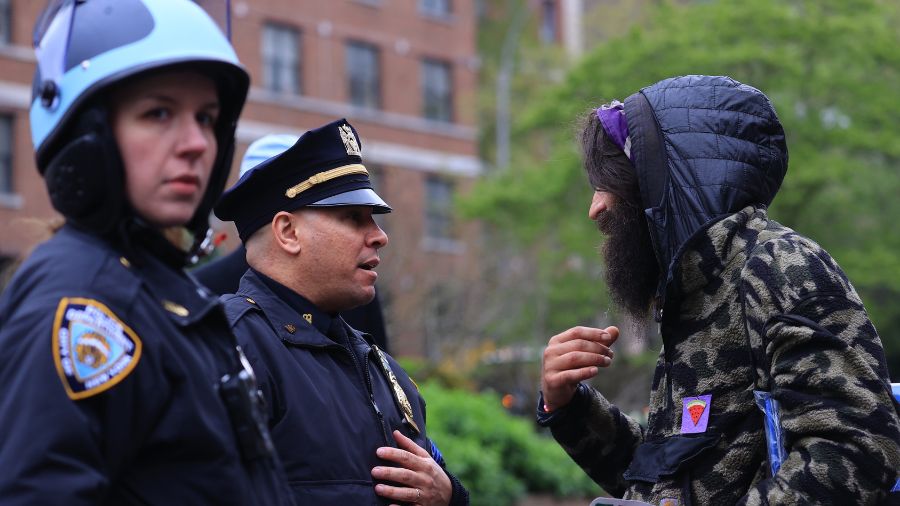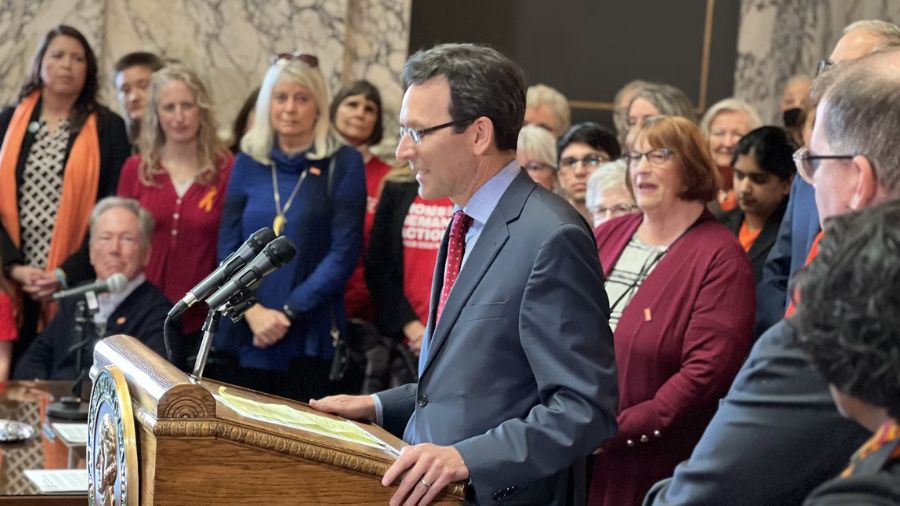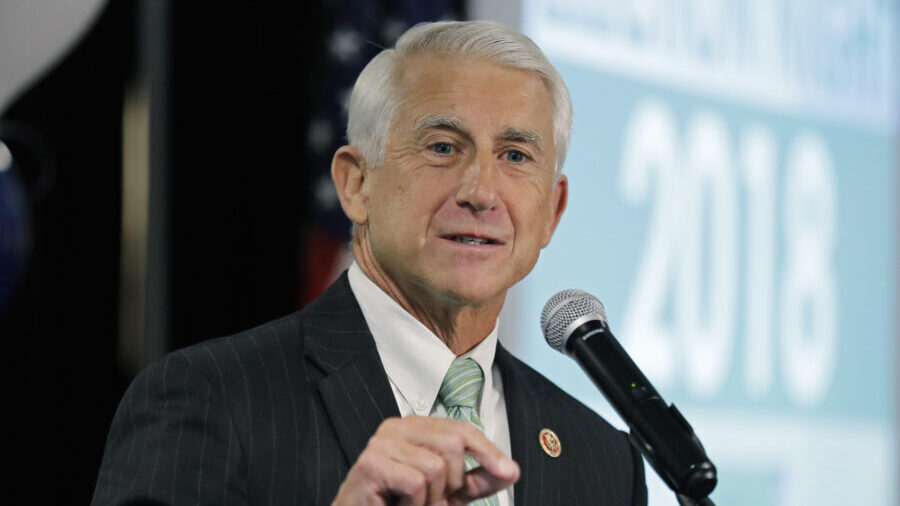Rantz: WA Democrats ignore parents, push mandatory sex ed for kindergartners
Jan 20, 2020, 6:19 AM | Updated: 11:37 am

(Unsplash)
(Unsplash)
If Washington Democrats have their way, all public school students will be provided “comprehensive sexual health education” starting in 2022 — and that inexplicably includes kindergartners, despite public input rejecting the requirement.
House Bill 2184 was born out of an equity issue to ensure that all students have access to the information, which includes lessons about affirmative consent, but to also address the needs of “LGBTQ+ students.”
A Comprehensive Sexual Health Education work group (CSHE) was created in 2019 under the Office of Superintendent to assess the sexual health curriculum needs of districts in the state. Part of their work was a survey answered by over 10,000 respondents, almost three quarters of which were women.
According to a document submitted by the CSHE, they justify starting at such a young age because the “social emotional needs of our youngest students must be addressed for prevention of future challenges.”
This move, however, goes against the 54 percent of the survey respondents saying K-5 sex ed should not be required. The CSHE didn’t care, flatly rejecting the survey respondents because they believe this to be “an issue of equity and would help to ensure all students across the state receive quality, evidence-informed instruction, regardless of who they are or where they live.” They know more about parenting your kids than you do.
It’s not surprising that the group rejected the public’s input. The entire 16-member, all-female work group were described as in agreement with their findings, though they had conversations about what some of the K-3 curriculum should look like. State Representative Michelle Caldier (R-Bremerton) called the group out for their lack of ideological diversity.
“I think that sometimes, you know in politics and when we’re making decisions. that it’s very easy to surround ourselves with people who just agree with us and I think that if the work group just had conversations and no disagreement, that really concerns me because I know there’s a lot of disagreement for that,” Caldier cautioned the work group representatives at a House Education Committee hearing. “And I would encourage you guys to go back and really listen to the people who disagree and come back with something better.”
Laurie Dills, from the Office of Superintendent, responded by acknowledging the bias, but that “we were exposed to a wide variety of viewpoints around the state.” Too bad they ignore the 54 percent.
Reproduction, affirmative consent and gender identity
CSHE members Susan Sellers, a teacher with the Longview School District, testified as part of the hearing for HB 2184. Defending the sex ed curriculum for the youngest students, she said the lessons on reproduction were basically “dogs have puppies, cats have kittens, things like that.”
Not so much. While it’s certainly true that most of the curriculum isn’t particularly controversial, they do delve into language you may not want your kindergartner learning about. One section of the curriculum for teachers to use as a guide, suggests talking to students about the penis as not having “any bones in it, but when people talk about an erection as a ‘boner,’ they’re mistaken.” Girls are taught about a “very sensitive little area at the top called the clitoris.”
The bill itself, cosponsored by State Representatives Monica Stonier (D-Vancouver) and Sharon Tomiko Santos (D-Seattle), focuses extensively on teaching affirmative consent, which states all parties must unambiguously consent to sexual conduct. But it also opens up students to unjust accusations of sexual misconduct when they cannot prove the unambiguous consent was given.
The non-partisan Foundation for Individual Rights in Education notes (when discussing the concept on a college campus, at least), “these policies threaten fundamental fairness by enforcing standards against accused students that are often vague and/or overbroad, and may lack the details necessary for students to comply. Indeed, many such policies are, for all practical purposes, impossible to follow.”
Beyond affirmative consent, the sex ed curriculum includes many of the controversial topics that doomed the bill last legislative session. And it’s fueled less about meeting the sexual needs of young kids (these needs don’t exist), than it is about pushing a very specific social justice agenda on gender identity for all classrooms. While the document wasn’t provided in the bill summary, Rep. Caldier sent me a copy which you can read here.
The curriculum is aimed at being inclusive, thus it treats biology as second to identity. For kindergarten teachers, the curriculum starts to slow-walk concepts on transgenderism, warning teachers (on page 8), “This lesson does, however, acknowledge that ‘there are some body parts that mostly just girls have and some parts that mostly just boys have. Being a boy or a girl doesn’t have to mean you have those parts, but for most people this is how their bodies are.’”
For Grade 1, teachers should have their students read “My Princess Boy” before teaching the six and seven-year-olds about reproduction. For Grade 6 curriculum on Gender Roles (page 191), teachers are cautioned:
You may notice language throughout the curriculum that seems less familiar – using the pronoun ‘they’ instead of ‘her’ or ‘him,’ using gender neutral names in scenarios and role-plays and referring to ‘someone with a vulva’ vs. a girl or woman. This is intended to make the curriculum inclusive of all genders and gender identities.
The curriculum gets more advanced — and woke — for older students, including the lesson that biological males are simply “assigned” a gender at birth.
There’s no doubt that depending on your worldview (political, religious or otherwise), you will see the content differently. There are parts that are objectively controversy-free, but some is clearly problematic by any reasonable view. And it’s not the same curriculum that would be taught statewide.
The question then becomes whether or not you trust your kid’s teachers to present the lesson plan fairly, or with a specific agenda in mind — to teach a worldview. Even if you agree with the worldview, shouldn’t parents be the one to introduce it to young children?
Listen to the Jason Rantz Show weekday afternoons from 3-6 p.m. on KTTH 770 AM (or HD Radio 97.3 FM HD-Channel 3). Subscribe to the podcast here.














